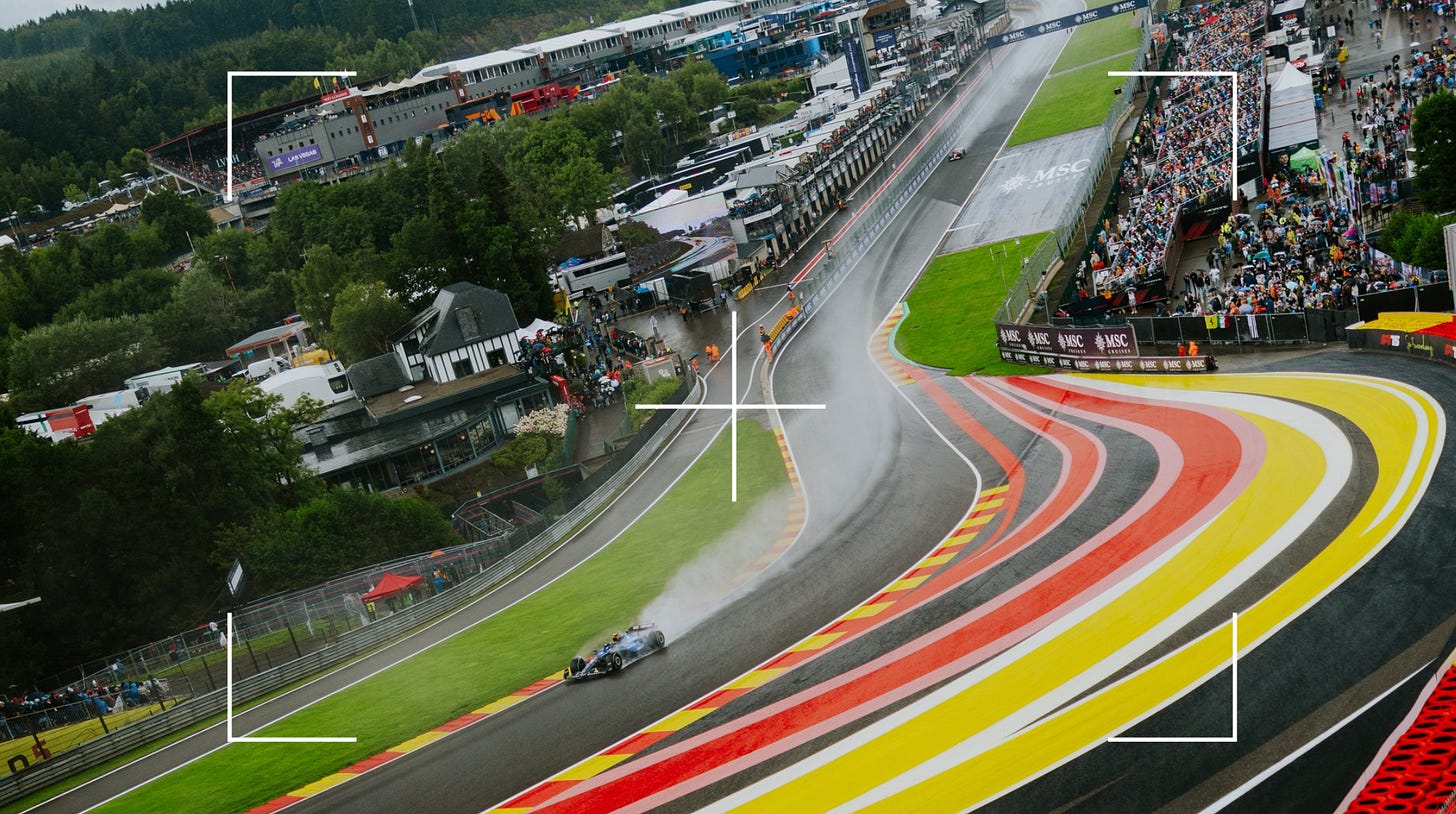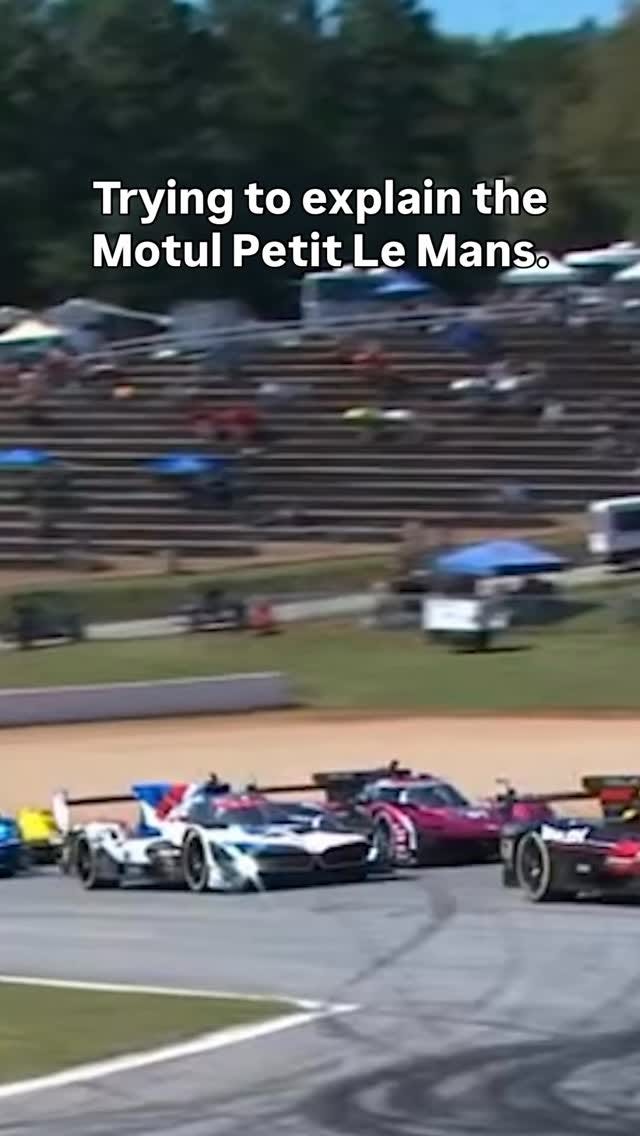The motorsports media needs to pay attention to the zeitgeist
Shift Happens #1 | Weekly pivots where motorsport collides with tech and culture.
Thank you for being here. You are receiving this email because you subscribed to Idée Fixe, the newsletter for curious minds. I’m Toni Cowan-Brown, a tech and F1 commentator. I’m a former tech executive who has spent the past five years on the floor of way too many F1, FE, and WEC team garages, learning about the business, politics, and technology of motorsports.
⏳ Reading time: 5 minutes
This week, I’m introducing something new: Shift Happens, weekly pivots where motorsport collides with tech and culture. Essentially a roundup of the headlines in and around motorsport you should be aware of. I’m introducing this alongside my weekly deep dives. I hope you enjoy this new curated format.
The lead lap
Not enough people in motorsports are paying enough attention to the GP Explorer race: The Last Race. This event gave the industry the perfect blueprint for what new fans want and how to grab their attention, at scale and leave them wanting more. I called on more traditional motorsports media to cover the event and was positively surprised when The Race covered it. Read my full piece and take on GP Explorer 👇
The number of the week
1.4 M people tuned into the live stream for the GP Explorer race last weekend. Additionally, it drew 1.2 million viewers on the French TV channel France 2 and had over 200,000 people in attendance in person over the weekend.
Three stories that need to be on your radar
Porsche leaves WEC. Porsche has confirmed it will end its factory involvement in the World Endurance Championship’s Hypercar class at the end of the 2025 season. When I was in Austin for the WEC Lone Star Le Mans, I asked around - specifically, a handful of people I respect in the industry what they had heard about this. Almost all shut down the rumours or said that Porsche would, at the very least, do another year in WEC. I guess they were wrong. Link
The FIA Presidential elections are in full swing (or are they?). The elections this year have offered quite a lot of fanfare - and most of it noise, clickbait titles, and some drama. These moments though, have raised a handful of valid questions and highlighted the complexity of running for this position - not something you can do on a last-minute whim. Link
Amelia Dimoldenberg is giving F1 some cultural relevance. It was almost three years ago when I suggested that Amelia Dimoldenberg should host the Grid Walk with Martin Brundle - who’s famously said this is his least favourite part of the job. Despite the fact that he continuously delivers meme-worthy content every race weekend. Well, she’s not hosting the Grid Walks (yet), but she did just recently film (during the Spa GP weekend) a mini series for F1. I ended up at a dinner during Cannes Lions with Amelia, where she told me she was working on this project, and my initial reaction was - it’s about bloody time.
One video worth your time
One [event] that caught my eye
SF Tech Week happened last week, and as an IBM partner, I got to attend a panel discussion titled “Is AI the New Referee?” with a stellar lineup of panelists, including Aly Wagner (Bay FC and 2x Olympic Gold medalist), Jonathan Adashek (SVP Marketing and Communications at IBM), and Hilary Ash (Bay Area Host Committee).
I wrote a full piece on all my takeaways here, but what struck me most about this panel was the holistic view of AI’s impact in sports - from fans, to athletes and even the business side of these series and leagues are all adopting AI. This isn’t about replacing referees or automating away the human elements that make sports compelling. Instead, it’s about:
Empowering athletes with data that was previously inaccessible, especially in under-resourced segments like women’s sports. And as women’s sports continue their meteoric rise in popularity and investment, AI-powered analytics can accelerate parity.
Enhancing fan experiences through real personalisation, accessibility, and deeper engagement tools, and I’ve experienced this first-hand in Formula 1 and most recently at the US Open (or even Wimbledon) with IBM and the app that they are continuously building for tennis fans. And most recently, we had the introduction of UFC Insights Engine (built with IBM Watsonx.ai) to help transform fighter data into tangible insights for fans.
Enabling organisations to operate at scales and speeds that meet the expectations of modern, and global audiences. The new generation of fans is expecting a lot more from the sports they love, and being very vocal about it too, cue Formula 1 fans having a lot to say about the recent official F1 broadcast direction.
We’re still in the early days of this transformation, but the momentum is undeniable. As someone who’s generally optimistic - but always with a side of scepticism - about technology, it’s very clear to me that none of this will diminish the magic of competition. Quite the opposite, it will amplify it. Somehow, all this technology has brought to the surface the very humanity of sports. But AI is certainly changing the rules of the game.






